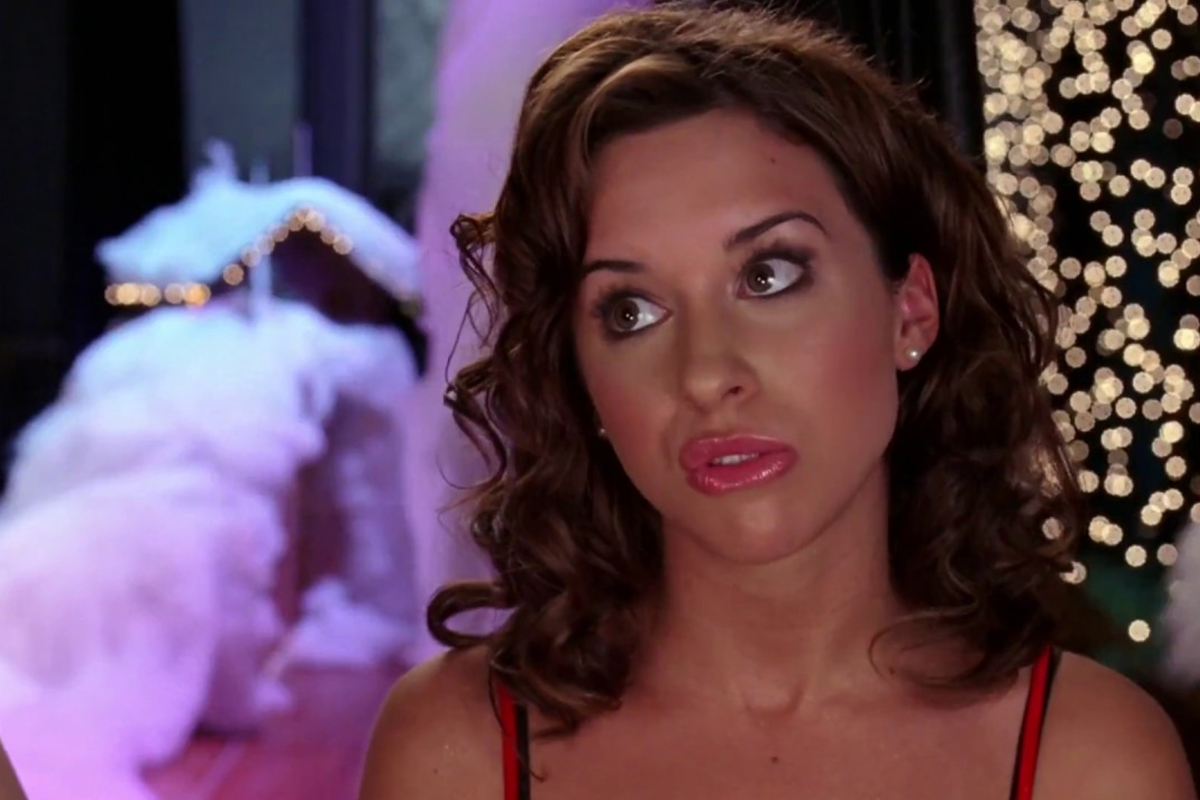In typical Jewish fashion, I’ve been simmering with a suppressed rage for about 14 years. It’s become unrelenting, and I’ve got to get something off my chest, which I’m about to do, here in this article.
Here goes.
In 2004, legendary teen movie sensation Mean Girls debuted on the silver screen. And 17 years later, Gretchen Wieners still hasn’t received justice.
So, I’m about to serve it.
Gretchen Wieners, brought to life by Lacey Chabert, is one of four Plastics at North Shore High School, alongside Cady Heron (Lindsay Lohan), Regina George (Rachel McAdams), and Karen Smith (Amanda Seyfried). The Plastics are a clique comprised exclusively of these four popular, burn book-writing high school girls who wear pink. But, obviously, only on Wednesdays.
Gretchen is the only Jewish Plastic, as far as the plot allows us to believe. When she starts to revolt against Regina, she reveals that her parents got her a pair of hoop earrings for Hanukkah, but that Regina forbids her from wearing them.
Before Cady moves to North Shore (from “Africa” — yikes), Gretchen is the only Plastic with darker features. Regina and Karen are both conventionally attractive, blonde, and are hyper-feminized. They are scantily clad, and everyone wants to sleep with them, basically.
And then there’s Gretchen. She’s got dark curls, dark eyes, and struggles to attract the attention of Jason, the guy she desperately fancies. She’s considered conventionally unattractive, at least compared to the other Plastics, and is deemed undateable. (It must be said that Lacey Chabert is obviously conventionally attractive.) When Gretchen is nominated for Spring Fling Queen, everyone, including Gretchen, is shocked. Regina says that Gretchen isn’t pretty, and that someone must’ve nominated her as a joke. This is probably just teenage rivalry. Regina, too, wants to be Spring Fling Queen.
But there’s more. Gretchen’s father is the inventor of toaster strudel. She’s rich, spoiled, and threatens to call her father, or a lawyer, when she is faced with punishment for what she had written in the Burn Book.
By no means is Gretchen Wieners a nice girl. That would defeat the movie’s plot. But she needs justice, because the characteristics she is given seem typically, well, Jewish. And not in a good way.
Jews, of course, aren’t one-size-fits-all. But Gretchen is given “Jewish” traits that are often portrayed in TV, film, and literature. That is, rich, unattractive, and with dark curly hair. It seems too much of a coincidence that she is the only named Jewish character, and also happens to be the richest and least desirable Plastic.
Antisemitic tropes aren’t uncommon in TV, film, and literature. Look no further than the hook-nosed goblins, who double up as bankers, in the Harry Potter franchise. Or the plotting witches, who are wealthy and part of a secret all-powerful society, in Roald Dahl’s The Witches, which has been adapted into two Hollywood movies.
Gretchen Wieners’ character might not play up these tropes to such extremes. But even so, the tropes are still there, even if they were written without intent. If Gretchen’s character features were unintentional, this illustrates just how deeply misconstrued Jewish narratives are in pop culture.
The most infuriating part — the part that ignited my rage and made me write this — is that I was 8 years old when I watched Mean Girls for the first time. Yes, I was probably too young to be watching it. Regardless, I was hooked, and I’ve watched it at least 20 times since. And I don’t think I’m the only Jewish woman in her early 20s who has done the same.
Mean Girls remains an iconic movie, and likely shaped a whole generation of movie-goers with its cult following. But it also shaped a generation of young Jewish fans, and especially young Jewish women, including 8-year-old me, who grew up to internalize the legacy of Gretchen Wieners.
I had heard it loud and clear: Jewish women are conventionally unattractive, undateable, and compared to my non-Jewish counterparts, seemingly inferior. It’s hardly an empowering message.
I grew up obsessed with movies like Mean Girls. Legally Blonde, John Tucker Must Die, Clueless. You know the sort. And the protagonist — the pretty one who always got the guy — was never a Gretchen Wieners. They were always a Regina George. (Before you ask, no, Cher Horowitz, the protagonist of Clueless, was not meant to be Jewish, according to her creator.)
Pop culture seems to have moved on from the gritty hyper-feminine movies of that era. But their impact has left a stain on a generation of us in our 20s and 30s.For Jews, it seems like a legacy that we can’t be part of. We never fit the mold.
That’s why Gretchen Wieners deserves justice. Not just for her, but for the thousands of young Jews who grew up watching Mean Girls thinking their Jewishness made them ugly, or less worthy of love. We have all, at some point, lived vicariously through Gretchen.
So, justice has been served. Next on the agenda: making fetch happen.



